How to Prevent Nail Biting in Cats
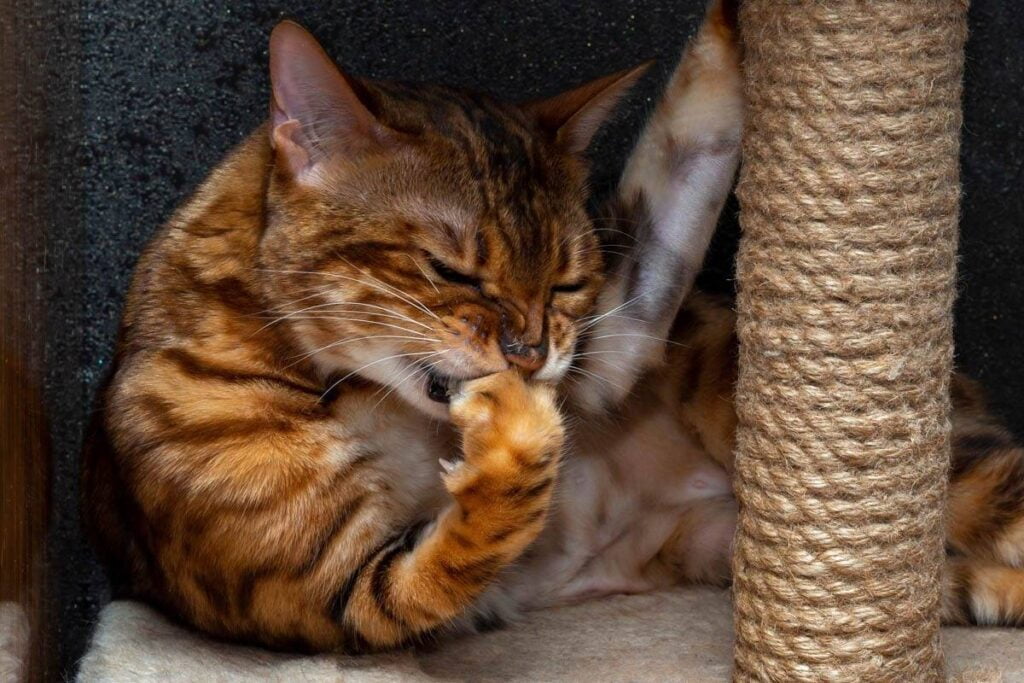
Cats have a natural instinct to groom themselves, including biting their nails. However, excessive nail biting in cats can be a cause for concern. It may indicate underlying health issues or behavioral problems. In this article, we’ll discuss the reasons why cats bite their nails. Including the problems associated with it, and how to prevent nail biting in cats.
Why do Cats Bite their Nails?
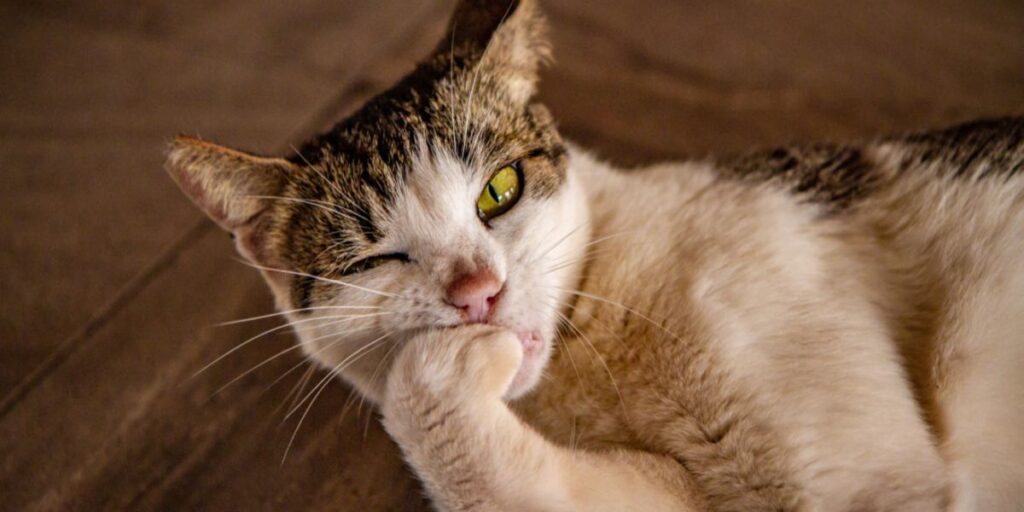
Cats biting their nails is a common and natural behavior, that is often a part of their grooming routine. It helps them to remove dirt and debris that gets trapped between their paw pads. Additionally, nail chewing can help maintain the nails and remove any broken or shredding pieces. However, some cats who have access to scratching posts may not engage in this behavior as much.
Other reasons why cats bite their nails, includes:
- Boredom: Cats can get bored, especially if they are indoor cats with limited stimuli. Biting their nails can be a way for them to alleviate boredom and pass the time.
- Anxiety: Just like humans, cats can also suffer from anxiety and stress. Biting their nails can be a coping mechanism for them to relieve stress.
- Health Issues: In some cases, nail biting can be a symptom of an underlying health issue. Issues such as such as skin irritation, infections, or painful paw pads.
- Overgrown Nails: Overgrown nails can be uncomfortable for cats. It can cause them to bite their nails to keep them trimmed.
The Problems Associated with Nail Biting in Cats
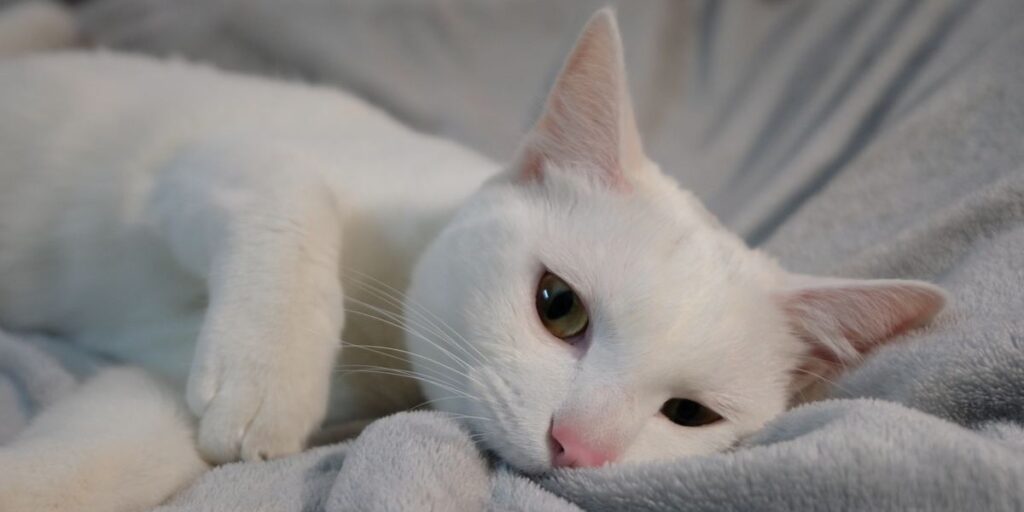
The root cause of excessive and obsessive nail biting behavior in cats is often related to anxiety or an injury or infection. Anxiety in cats can stem from various sources, such as other animals in the household, being alone, or environmental challenges.
To reduce anxiety, owners should establish a consistent routine and provide enough exercise for their cats. In severe cases, mood-stabilizing medication may be necessary. Infections and injuries, such as bacterial or yeast infections, can also lead to a cat picking at their paws and nails. These infections may be due to genetic predisposition or contact with irritants.
If a cat’s nails are trimmed too short, it may result in infections. This is because the blood vessels in the claws are no longer protected.
Therefore if your cat continues it’s excessive nail biting habits it may cause several problems, including:
- Pain and Bleeding: Continual biting can cause pain and bleeding, leading to infections and further complications.
- Destruction of Furniture: Cats who bite their nails excessively may also bite furniture or other household items, causing damage.
- Behavioral Issues: Nail biting can become a habit and can turn into a behavioral problem. It can lead to further stress and anxiety in the cat.
Preventing Nail Biting in Cats
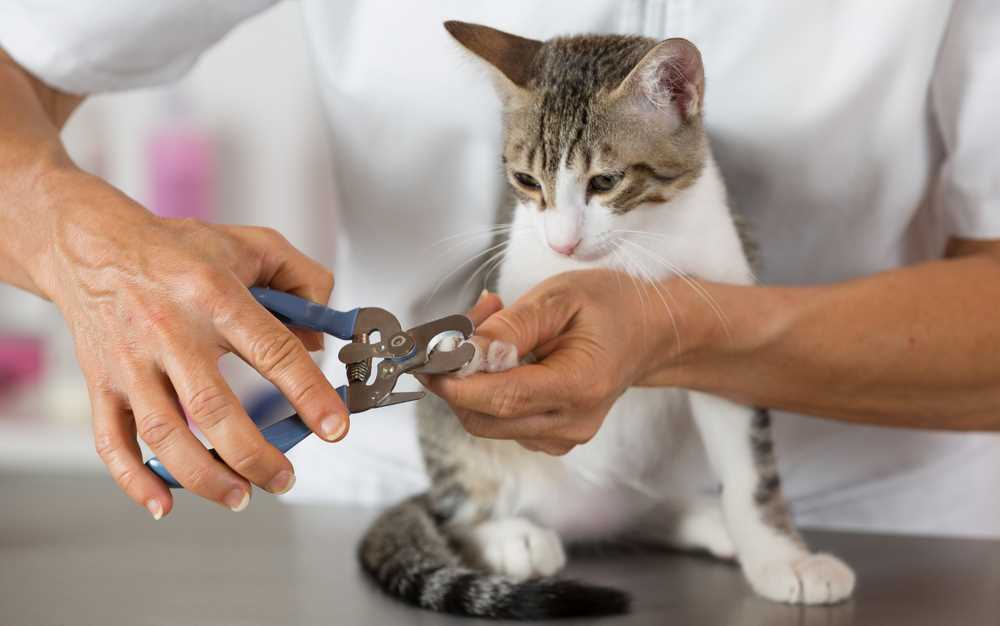
Occasional nail biting in cats is typically normal and nothing to worry about. However, if the behavior becomes excessive, intervention may be necessary. By examining your cat’s paw for any irritations or injuries, you can determine the cause. A visit to the veterinarian can help treat any infections or injuries. This can make your cat more comfortable, which in turn should reduce their nail chewing.
Additionally, creating a calm and comfortable environment can alleviate stress and help prevent nail biting in cats. Providing them with plenty of hiding spots, and ensuring they have plenty of opportunities to hide or retreat when they feel overwhelmed, can help to reduce their stress levels. Providing them with plenty of interactive toys and scratching posts can also help to provide them with stimulation and reduce boredom, which can be a cause of anxiety.
If you are unable to address the root cause of the anxiety, or if your cat’s nail chewing continues despite your efforts to reduce stress, your vet may recommend a mood-stabilizing medication. These medications can help to even out your cat’s anxiety levels and help them feel more calm and relaxed.
Dealing with anxiety-related nail chewing is more challenging, but addressing the source of anxiety and increasing your cat’s exercise through play sessions may help them feel more relaxed.
Methods to Prevent Nail Biting
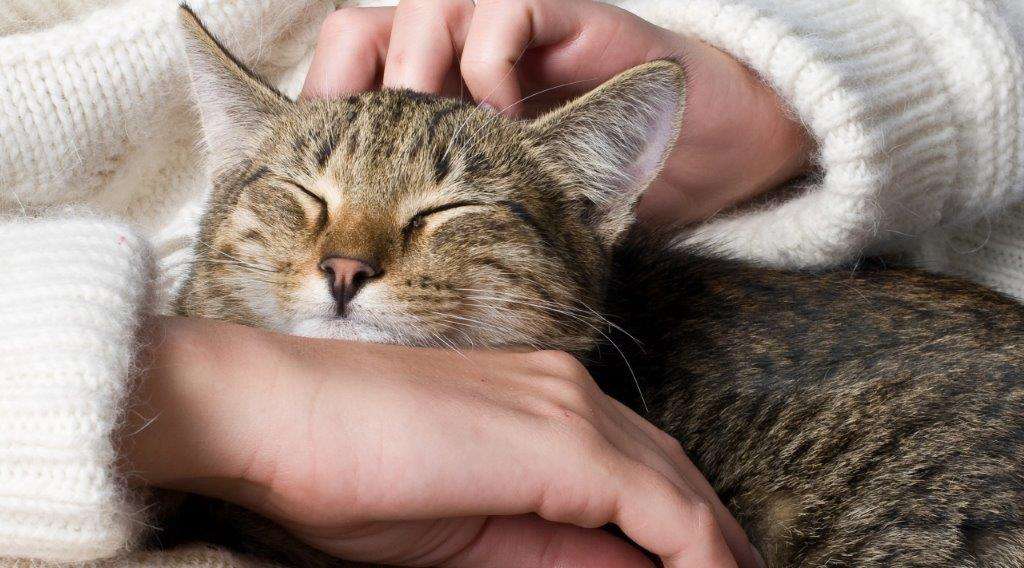
Here are some ways to prevent nail biting in cats:
- Provide Mental and Physical Stimulation: Cats need mental and physical stimulation to keep them entertained and engaged. This can include playing with toys, providing scratching posts, and allowing them to explore their environment.
- Trim their Nails Regularly: Regular nail trims can help prevent overgrown nails, which can cause discomfort and lead to excessive biting.
- Address Health Issues: If you suspect that your cat’s nail biting is due to an underlying health issue, seek veterinary help immediately.
- Reduce Stress and Anxiety: Cats can become stressed and anxious due to changes in their environment, lack of stimulation, or changes in their routine. Try to provide a stable and calm environment for your cat and consider seeking help from a cat behaviorist if needed.
- Provide a Scratching Post: Providing a scratching post can help keep your cat’s nails trimmed and provide them with an outlet to relieve stress.
Conclusion
In conclusion, excessive nail biting in cats can be a cause for concern, leading to pain, bleeding, and behavioral problems. Preventing nail biting in cats requires providing mental and physical stimulation, trimming their nails regularly, addressing any health issues, reducing stress and anxiety, and providing a scratching post. If you suspect that your cat is biting their nails excessively, seek veterinary help immediately to rule out any underlying health issues.


